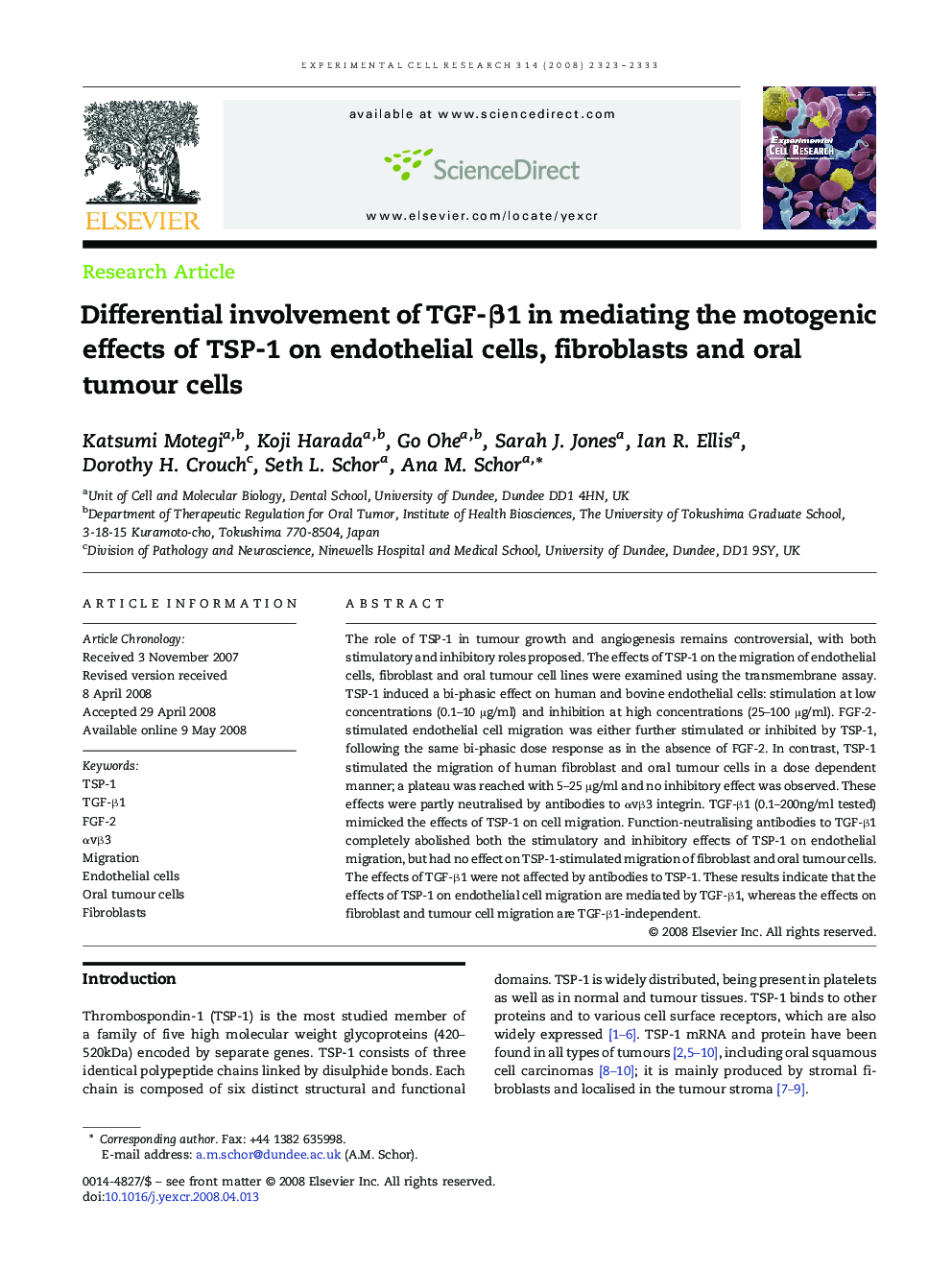| Article ID | Journal | Published Year | Pages | File Type |
|---|---|---|---|---|
| 2131933 | Experimental Cell Research | 2008 | 11 Pages |
The role of TSP-1 in tumour growth and angiogenesis remains controversial, with both stimulatory and inhibitory roles proposed. The effects of TSP-1 on the migration of endothelial cells, fibroblast and oral tumour cell lines were examined using the transmembrane assay. TSP-1 induced a bi-phasic effect on human and bovine endothelial cells: stimulation at low concentrations (0.1–10 µg/ml) and inhibition at high concentrations (25–100 µg/ml). FGF-2-stimulated endothelial cell migration was either further stimulated or inhibited by TSP-1, following the same bi-phasic dose response as in the absence of FGF-2. In contrast, TSP-1 stimulated the migration of human fibroblast and oral tumour cells in a dose dependent manner; a plateau was reached with 5–25 µg/ml and no inhibitory effect was observed. These effects were partly neutralised by antibodies to αvβ3 integrin. TGF-β1 (0.1–200ng/ml tested) mimicked the effects of TSP-1 on cell migration. Function-neutralising antibodies to TGF-β1 completely abolished both the stimulatory and inhibitory effects of TSP-1 on endothelial migration, but had no effect on TSP-1-stimulated migration of fibroblast and oral tumour cells. The effects of TGF-β1 were not affected by antibodies to TSP-1. These results indicate that the effects of TSP-1 on endothelial cell migration are mediated by TGF-β1, whereas the effects on fibroblast and tumour cell migration are TGF-β1-independent.
